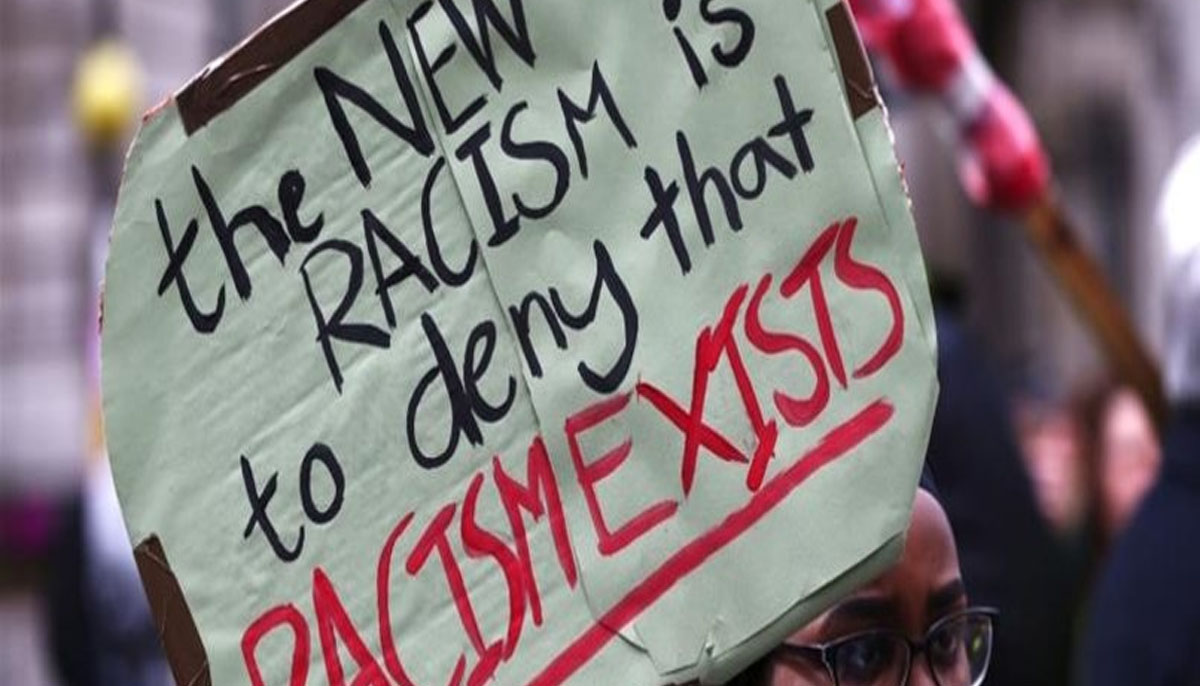Racism in the UK: the effects of a ‘hostile environment’
Ijeoma Moore came to Britain from Nigeria as a toddler and is now 25. "I have lived here since I was two. I feel very much British," she said. But two years after a scandal involving the "Windrush" generation of 500,000 Caribbean migrants who came to Britain after World War Two, race and identity remain hot topics.
The death of George Floyd, an unarmed black man, during a US police arrest has sparked a wave of Black Lives Matter protests across the country. And there have been calls to take down colonial-era statues to figures who were involved in, or profited from, the international slave trade. Moore said she cannot remember having studied colonialism at school and was shocked at the treatment of some of the Windrush migrants.
They were supposed to have been granted British citizenship but still had to prove every year they had a right to remain, under threat of expulsion. "If that happened to them, what could happen to me?" she asked.
Currently, Moore herself has only a limited right to remain in Britain, which means she has to renew her papers every 30 months. It takes 10 years to get permanent resident status, and then another year to apply for British nationality in what she said was a "very complicated" -- and expensive -- process.
"I think I paid £1,500 the last time I made my application back in 2017. The next one is this year and the fees have increased again," she said. "I am looking to pay at least £3,000 for my next application."
She is now a member of the We Belong group of young migrants, born abroad but who have grown up in Britain, and have had to battle "hostile" government immigration policies.
"They (the government) should not look at black people or migrants like they are bad things but see how much they contribute to society," she added. Although the British government has promised to "right the wrongs" suffered by the Windrush migrants from its former colonies, many of the victims are still bitter.
"We don’t matter," said Anthony Bryan, 63, who arrived in Britain in 1965. Several decades later, he found himself placed in detention twice and threatened with deportation. But at the very last moment, lawyers managed to secure his release.
The experience left him traumatised, he said, and he is still waiting for compensation. But he has at least received his British passport, which meant he could visit his mother in Jamaica in 2018, the first time he had left the country in 53 years. With other activists, he recently brought a petition signed by more than 130,000 people to Downing Street, calling on Prime Minister Boris Johnson to act.
-
 Caitlin O’Connor Says Fiance Joe Manganiello Has Changed Valentine’s Day For Her
Caitlin O’Connor Says Fiance Joe Manganiello Has Changed Valentine’s Day For Her -
 Rachel Zoe Sends Out Message For Womne With Her Post-divorce Diamond Ring
Rachel Zoe Sends Out Message For Womne With Her Post-divorce Diamond Ring -
 James Van Der Beek's Final Conversation With Director Roger Avary Laid Bare: 'We Cried'
James Van Der Beek's Final Conversation With Director Roger Avary Laid Bare: 'We Cried' -
 Jaden Smith Walks Out Of Interview After Kanye West Question At Film Premiere
Jaden Smith Walks Out Of Interview After Kanye West Question At Film Premiere -
 Why Halle Berry Wasn't Ready For Marriage After Van Hunt Popped Question? Source
Why Halle Berry Wasn't Ready For Marriage After Van Hunt Popped Question? Source -
 Michelle Obama Gets Candid About Spontaneous Decision At Piercings Tattoo
Michelle Obama Gets Candid About Spontaneous Decision At Piercings Tattoo -
 Bunnie Xo Shares Raw Confession After Year-long IVF Struggle
Bunnie Xo Shares Raw Confession After Year-long IVF Struggle -
 Brooks Nader Reveals Why She Quit Fillers After Years
Brooks Nader Reveals Why She Quit Fillers After Years -
 Travis Kelce Plays Key Role In Taylor Swift's 'Opalite' Remix
Travis Kelce Plays Key Role In Taylor Swift's 'Opalite' Remix -
 How Jennifer Aniston's 57th Birthday Went With Boyfriend Jim Curtis
How Jennifer Aniston's 57th Birthday Went With Boyfriend Jim Curtis -
 JoJo Siwa Shares Inspiring Words With Young Changemakers
JoJo Siwa Shares Inspiring Words With Young Changemakers -
 James Van Der Beek Loved Ones Breaks Silence After Fundraiser Hits $2.2M
James Van Der Beek Loved Ones Breaks Silence After Fundraiser Hits $2.2M -
 Disney’s $336m 'Snow White' Remake Ends With $170m Box Office Loss: Report
Disney’s $336m 'Snow White' Remake Ends With $170m Box Office Loss: Report -
 Travis Kelce's Mom Donna Kelce Breaks Silence On His Retirement Plans
Travis Kelce's Mom Donna Kelce Breaks Silence On His Retirement Plans -
 Premiere Date Of 'Spider-Noir' Featuring Nicolas Cage Announced
Premiere Date Of 'Spider-Noir' Featuring Nicolas Cage Announced -
 Pedro Pascal's Sister Reveals His Reaction To Her 'The Beauty' Role
Pedro Pascal's Sister Reveals His Reaction To Her 'The Beauty' Role




